Polar Bear
Project Overview
„Polar Bear – Your CO2 Footprint in Mobility“ is a research project aimed at increasing awareness and changing behaviors in mobility to reduce CO2 emissions. This project represents a crucial step towards a more sustainable future, where every individual is empowered to make a positive impact on the environment through informed and responsible mobility choices.
- Type: Research project in the context of ESG (Environmental, Social, and Governance).
- Team: An interdisciplinary team of 9 people.
- My Role: As a UX Designer, I was responsible for designing user-centric solutions.
- Duration: 6 months.
Context
The transport sector in Germany is responsible for 19% of the country’s annual total emissions, a significant figure that highlights the importance of addressing CO2 emissions in this area. Despite advancements in vehicle technology, emissions from the transport sector are on the rise, posing a challenge to Germany’s climate goals. This situation underscores a global need for increased awareness and behavioral change towards more sustainable mobility practices
Problem Statement
„How can we increase awareness and knowledge among the citizens of Germany regarding their CO2 footprint from mobility choices, and what strategies can be implemented to encourage and facilitate a shift towards more sustainable mobility behaviors?“
Research Insights
User needs and goals for sustainable mobility focus on integrated, efficient, and accessible transport options. Key aspects include:
- Integrated Mobility: Users seek Mobility-as-a-Service platforms for easy navigation across various transport modes, reducing reliance on private cars.
- Data Utilization: Use of mobility data to design programs for emission reduction and improve public transport services.
- Environmental Awareness: Increasing user preference for eco-friendly transport options and services that inform about trip-related CO2 emissions.
The focus is on creating a sustainable mobility ecosystem that is user-centric, environmentally conscious, and inclusive
Online Survey
The online survey involved 130 participants, mainly young adults (64% aged 18-29) with a slight female majority (56%). The majority were employees (63%) and students (35%).
Tracking personal emissions and promoting eco-friendly behavior, was met with mixed reactions. While it was praised for its potential to highlight personal emissions and savings, concerns over data privacy, smartphone dependency, and skepticism towards its impact on long-term sustainability were significant deterrents. Out of the respondents, 59 were open to using the Mobility Analyzer, but 42 were not, although 57 would recommend it. Despite the interest, 94% have never used CO2 trackers, indicating low prior engagement with similar apps.
Persona
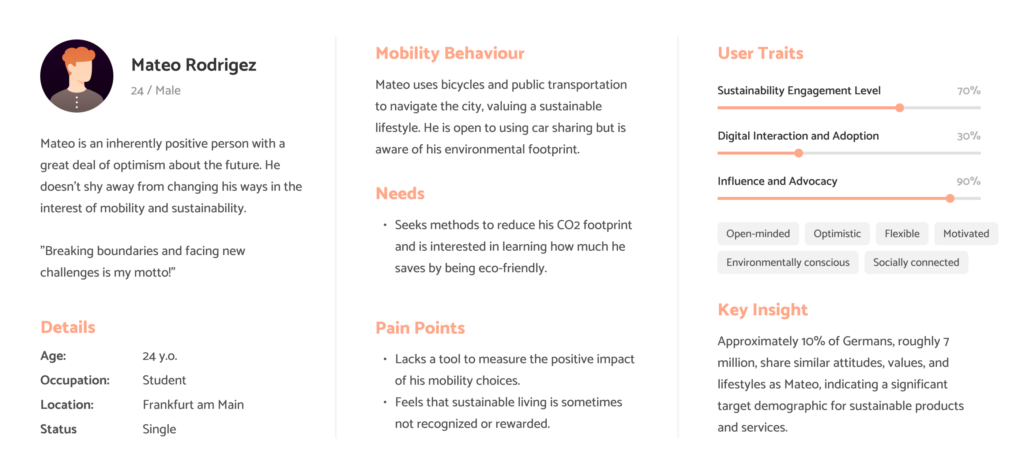
User Journey
In a co-design workshop, we aimed to engage stakeholders in mapping out a user journey that encourages environmentally friendly mobility choices. The workshop included participants from diverse backgrounds to ensure a comprehensive and user-centered design process.
The workshop produced detailed user journeys and prototype ideas for the „Polar Bear“ app, directly informed by stakeholder input. This collaborative process ensured that the app would be deeply aligned with the real-world needs and challenges of users aiming to adopt more sustainable mobility behaviors.
HMW
How might we motivate citizens to improve their mobility behavior in the long term?
How might we enhance privacy and trust in data handling to alleviate user concerns about personal data tracking and usage?
Prototype to Learn
The essence of „Prototype and Learn“ is iterative learning—each prototype is a hypothesis being tested, aiming to learn more about the user’s needs, the solution’s feasibility, and its potential impact. This approach encourages experimentation and embraces failures as learning opportunities, allowing to quickly identify what works and what doesn’t.
Information Architecture
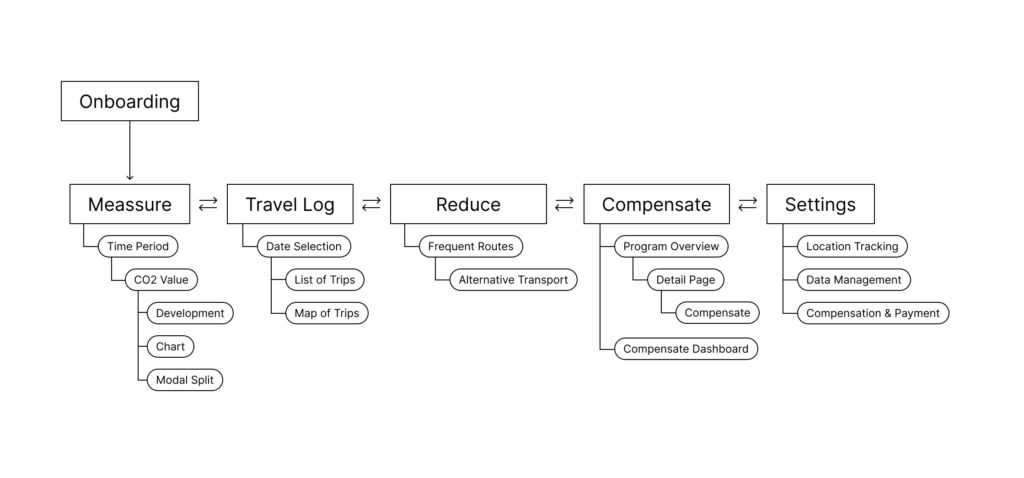
Low Fidelity Prototype
In a co-design workshop, we aimed to engage stakeholders in mapping out a user journey that encourages environmentally friendly mobility choices. The workshop included participants from diverse backgrounds to ensure a comprehensive and user-centered design process.
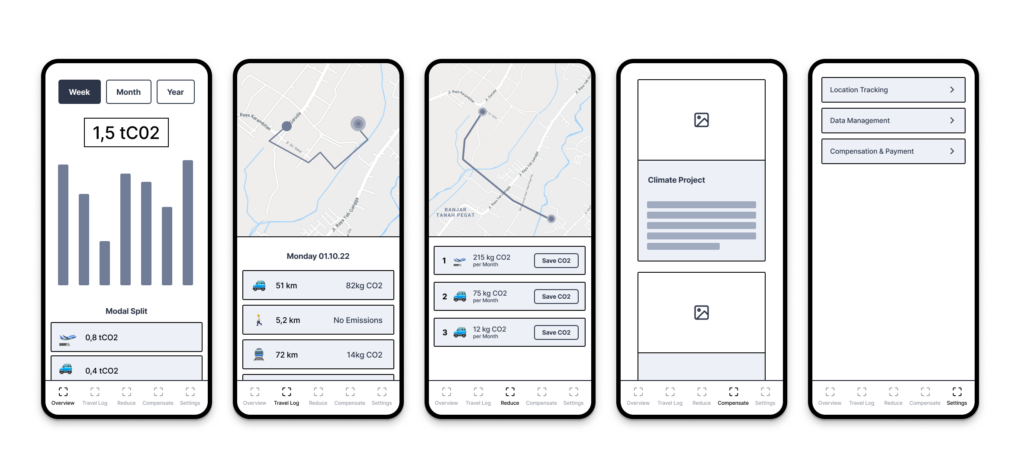
User Interviews
In a co-design workshop, we aimed to engage stakeholders in mapping out a user journey that encourages environmentally friendly mobility choices. The workshop included participants from diverse backgrounds to ensure a comprehensive and user-centered design process.
High Fidelity Prototype
In a co-design workshop, we aimed to engage stakeholders in mapping out a user journey that encourages environmentally friendly mobility choices. The workshop included participants from diverse backgrounds to ensure a comprehensive and user-centered design process.
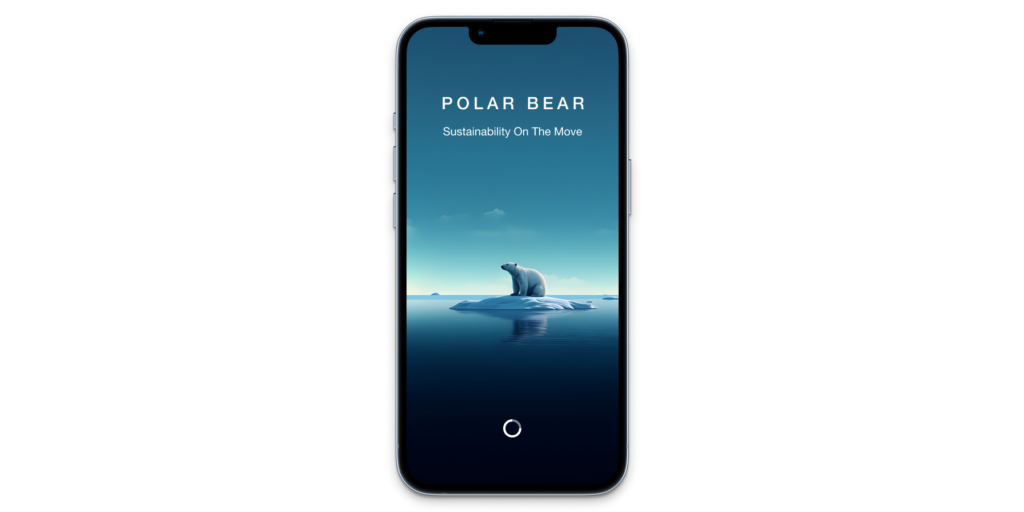
CO2 Dashboard
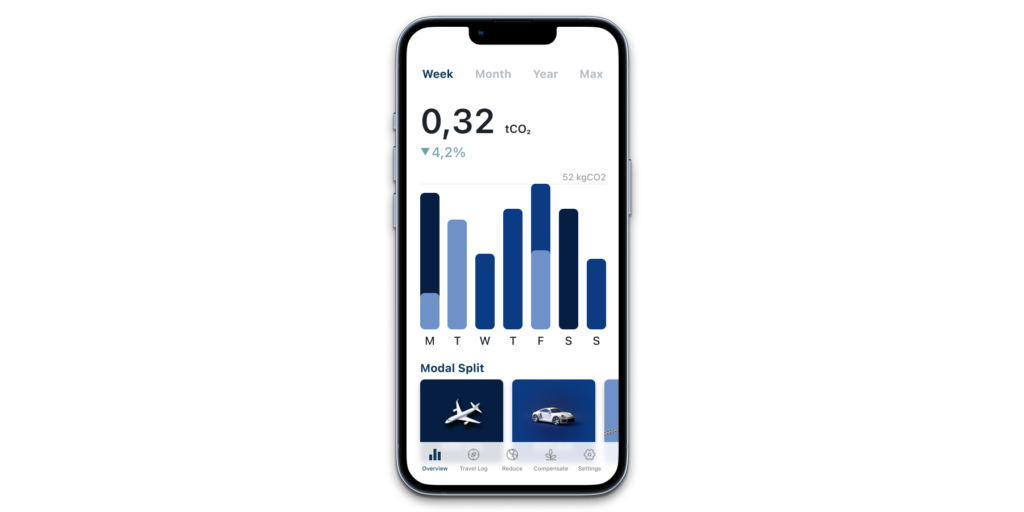
Reduce CO2

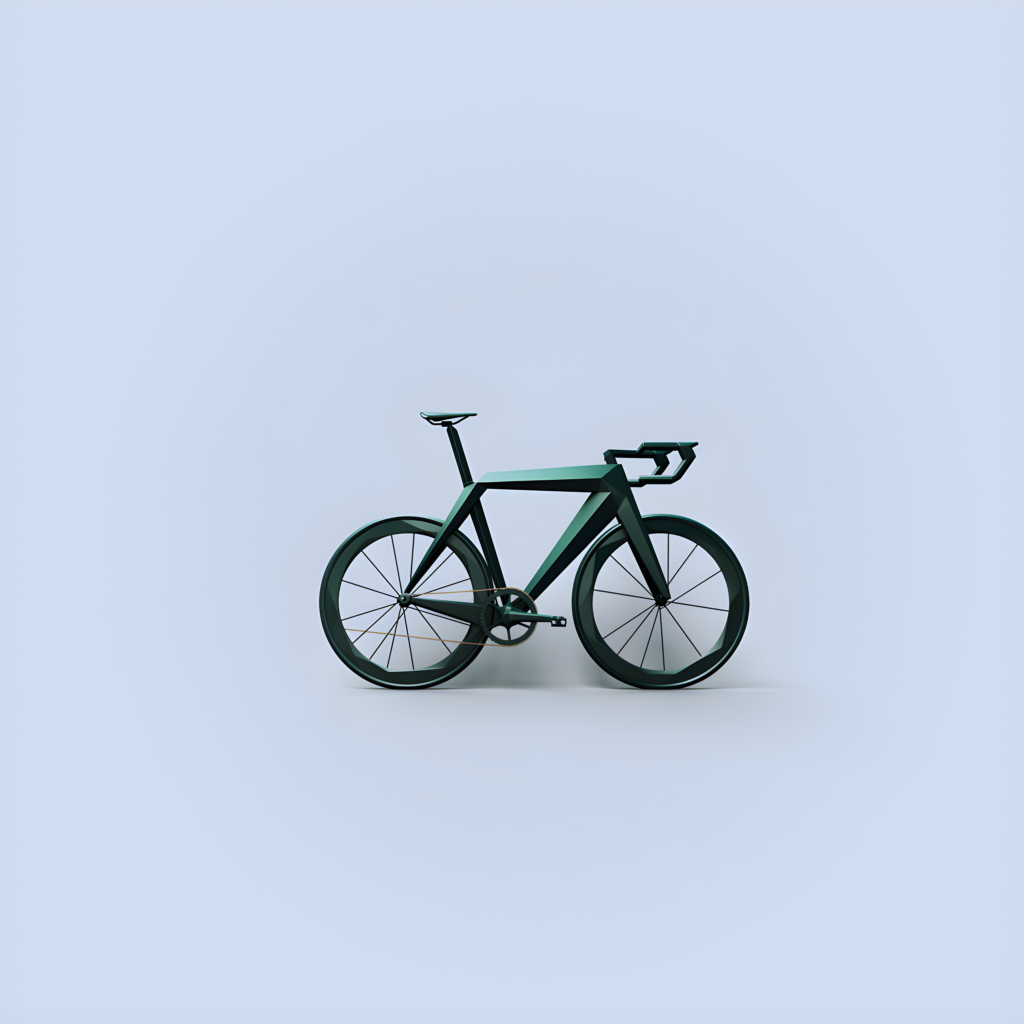
Usability Test
In a co-design workshop, we aimed to engage stakeholders in mapping out a user journey that encourages environmentally friendly mobility choices. The workshop included participants from diverse backgrounds to ensure a comprehensive and user-centered design process.


